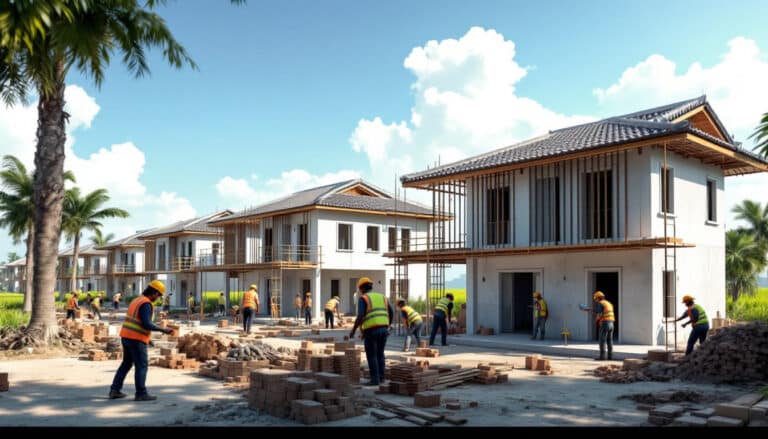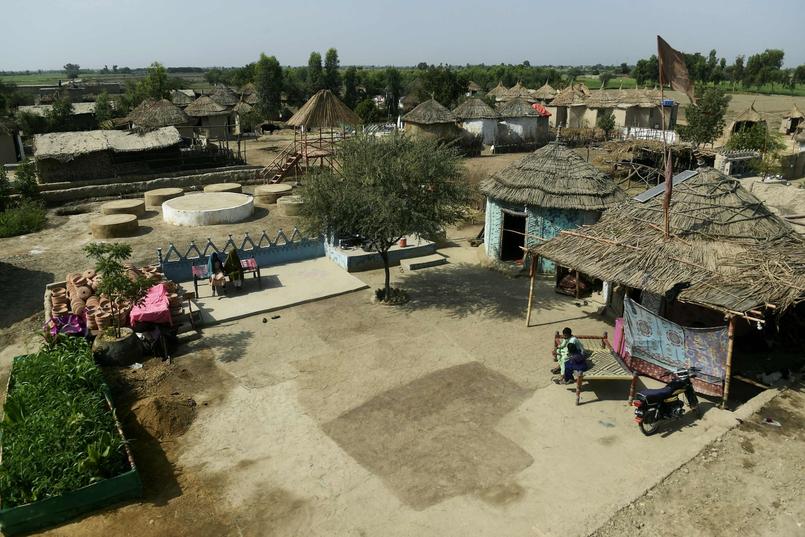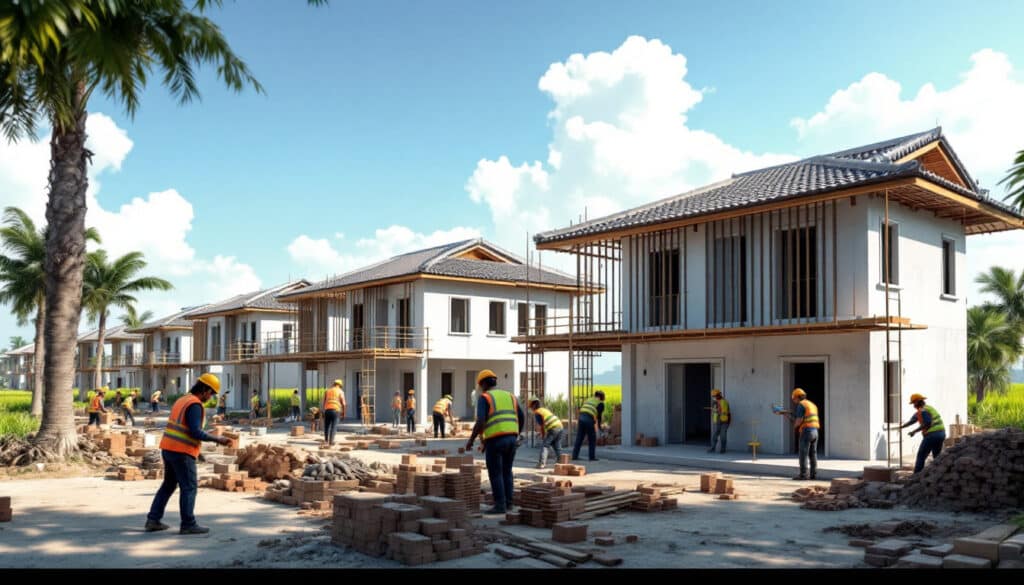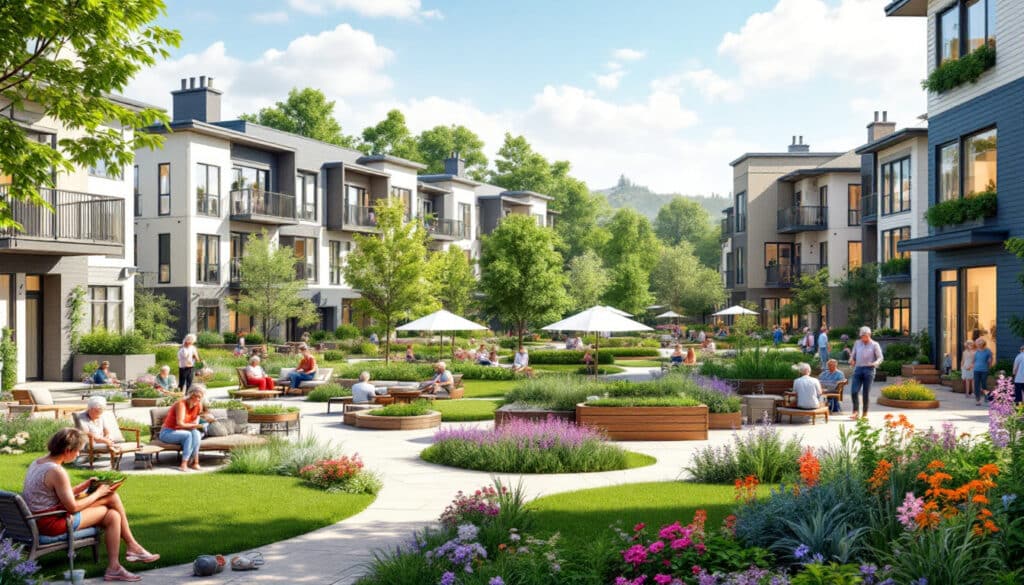Cookies cookies weave the fabric of your online experience without you knowing it.
Every visit, every click is recorded, shaping a personalized digital universe.
But what is hidden behind these small files?
Cookies and the collected data serve to maintain high-performing services, protect against abuse, and measure user engagement. By choosing “Accept all,” you enable the development of new services, content personalization, and measurement of advertising effectiveness. Refusing this option limits the use of cookies for non-personalized purposes, influenced by your current activity and general location. For increased control over your privacy, select “More options” and adjust your settings according to your preferences.
“`html
Table of Contents
ToggleWhat is the strategic partnership between Operational Intelligence and KODE Labs?
The strategic partnership between Operational Intelligence and KODE Labs marks a significant step in the field of smart buildings. This alliance combines Operational Intelligence’s expertise in data and advanced analytics with KODE Labs’ skills in developing innovative technology solutions for the real estate sector. Together, these two entities aim to transform the urban landscape in Australia, Southeast Asia, and the United Kingdom by integrating cutting-edge technologies that optimize building management, enhance energy efficiency, and provide an enriched user experience.
Through this partnership, both companies can pool their resources and knowledge to develop customized solutions that meet the specific needs of each regional market. For example, in Australia, the focus may be on climate resilience of infrastructure, while in Southeast Asia, the emphasis could be on sustainability and integration of mobile technologies. In the United Kingdom, the focus might be on improving energy efficiency and reducing operational costs.
Moreover, this collaboration accelerates innovation in the field of smart buildings by promoting the sharing of best practices and facilitating the development of new technologies. By combining the strengths of Operational Intelligence and KODE Labs, this partnership aims to position these two players as key leaders in the global smart real estate sector.
How does this partnership revolutionize smart buildings?
The partnership between Operational Intelligence and KODE Labs revolutionizes smart buildings by introducing innovative solutions that transform how buildings are designed, managed, and maintained. By integrating technologies such as the Internet of Things (IoT), artificial intelligence (AI), and advanced analytics, the partnership enables real-time monitoring and management of infrastructures.
This approach not only reduces operational costs by optimizing energy consumption but also improves occupant comfort and safety. For example, with integrated AI, heating, ventilation, and air conditioning systems can automatically adjust their settings based on environmental conditions and user habits, thereby ensuring maximum efficiency and minimal energy consumption.
Furthermore, this collaboration promotes the use of data to anticipate and resolve issues before they arise, thanks to predictive maintenance systems. By analyzing real-time collected data, building managers can identify early signs of equipment failures and intervene proactively, thus minimizing interruptions and extending the lifespan of installations.
Ultimately, this partnership transforms traditional buildings into intelligent environments capable of dynamically adapting to the changing needs of users and markets, thereby positioning buildings as key players in the smart city of tomorrow.
What innovative technologies are integrated?
The collaboration between Operational Intelligence and KODE Labs integrates a range of innovative technologies that define the standards of modern smart buildings. Among these technologies, the Internet of Things (IoT) plays a central role in connecting various devices and sensors within buildings, enabling real-time data collection and analysis. This interconnectivity facilitates proactive infrastructure management and the creation of more responsive and adaptive environments.
Additionally, artificial intelligence (AI) is used to analyze the vast amounts of data generated by IoT sensors. AI algorithms can identify patterns and trends that can be used to optimize energy consumption, predict maintenance needs, and enhance security. For example, AI-based systems can automatically adjust lighting and temperature based on occupant presence and habits, contributing to a more efficient use of resources.
Furthermore, advanced analytics provides valuable insights into building operations, allowing managers to make informed decisions to improve performance and reduce operational costs. Data visualization tools enable quick and intuitive understanding of the collected information, thereby facilitating daily and strategic building management.
Finally, augmented reality (AR) and virtual reality (VR) are employed for applications such as training maintenance personnel and simulating emergency scenarios. These immersive technologies provide a new dimension to smart building management, making operations more efficient and interventions safer.
To learn more about the evolution of smart building technologies, refer to this article.
Impact in Australia on urban infrastructures
In Australia, the partnership between Operational Intelligence and KODE Labs has a significant impact on urban infrastructures, particularly in major cities where congestion and energy demand are high. By integrating smart building solutions, Australian cities benefit from better energy management, resulting in substantial savings and a reduced carbon footprint.
The deployed technologies enable constant monitoring of the energy performance of buildings, facilitating the identification of optimization opportunities. For instance, energy management systems (EMS) can automatically adjust building configurations based on occupancy and weather conditions, ensuring optimal resource utilization.
Furthermore, these technologies contribute to the resilience of infrastructures against climate challenges, a major issue for Australia, which is subject to extreme weather phenomena. Smart buildings are thus better equipped to withstand the impacts of storms, fires, and floods, thanks to early detection systems and automated response capabilities.
Another crucial aspect is improving citizens’ quality of life through more comfortable and safer work and living environments. Intelligent solutions such as automatic temperature and lighting controls, as well as advanced security systems, contribute to creating more pleasant and efficient spaces.
To further analyze the market for smart building automation technologies in Australia, check this article.
In Southeast Asia, what transformations await buildings?
Southeast Asia is booming in urban development, and the partnership between Operational Intelligence and KODE Labs plays a decisive role in transforming the region’s buildings into smart infrastructures. With rapid population growth and urbanization, it is essential to implement sustainable solutions to effectively manage resources and improve quality of life.
The integrated technologies enable better management of energy and water, which are crucial in regions often facing sustainability challenges. For instance, intelligent systems can optimize water resource use by recycling and efficiently redistributing water within buildings, while reducing waste.
Moreover, increased connectivity through IoT fosters more efficient building management by facilitating monitoring and control of centralized systems. This interconnectivity also enhances building security through advanced surveillance systems and automated incident responses.
Another notable aspect is the integration of mobile technologies and smart applications, which allow occupants to intuitively control their living and working environment. This customization of spaces contributes to greater user satisfaction and increased productivity.
To learn more about leveraging technology for success in the smart building automation technology market in Southeast Asia, visit this page.
In the United Kingdom, what are the prospects?
In the United Kingdom, the partnership between Operational Intelligence and KODE Labs opens new prospects for smart buildings by addressing the growing needs for sustainability, energy efficiency, and urban infrastructure management. With government initiatives promoting innovation and energy transition, this collaboration perfectly aligns with national goals for sustainable urban development.
The technologies deployed in this context enable seamless integration of building management systems, offering real-time oversight of energy and operational performance. This facilitates the identification of areas needing improvement and allows for faster, more informed decision-making.
Furthermore, the focus on sustainability translates to the use of eco-friendly materials and renewable energy solutions integrated into smart buildings. These initiatives not only contribute to reducing greenhouse gas emissions but also to creating healthier and more resilient living and working environments.
The prospects of this partnership also include expanding the use of artificial intelligence and machine learning to anticipate market trends and adapt infrastructures accordingly. This adaptability is essential to meet the changing needs of users and the ongoing technological advancements.
Finally, the partnership is committed to continuing its engagement in sustainability and social responsibility, ensuring that all initiatives and technological developments comply with environmental standards and contribute positively to society.
To explore the impact of AI assistants in smart buildings in the UK, check this article.
Benefits for end users
End users greatly benefit from the partnership between Operational Intelligence and KODE Labs through enhancements in features and performance of smart buildings. This collaboration results in more comfortable, safe, and energy-efficient environments, which improves the quality of life for occupants and reduces operating costs.
Among the key benefits are optimized energy management that leads to significant savings on energy bills while reducing the carbon footprint of buildings. Intelligent systems automatically adjust energy consumption based on actual needs, thereby avoiding waste and promoting a more sustainable use of resources.
Security is also enhanced through advanced technologies such as real-time surveillance, intelligent alarm systems, and automated access controls. These devices provide increased protection against intrusions, fires, and other potential risks, ensuring the safety of occupants and property.
Moreover, user comfort is enhanced by solutions such as automatic temperature regulation, intelligent lighting, and optimized air quality. These features create more pleasant and productive living and working environments while contributing to the health and well-being of occupants.
Ergonomics and ease of use are also at the heart of the solutions developed by the partnership, with intuitive user interfaces allowing for easy and personalized control of building systems. This translates into a better user experience and increased adoption of smart technologies.
What are the future prospects of this collaboration?
The future prospects of the partnership between Operational Intelligence and KODE Labs are promising, with numerous opportunities for growth and innovation in the field of smart buildings. By combining their respective expertise, both companies are well-positioned to develop new technologies and solutions that meet the constantly evolving market demands.
One of the main avenues for expansion involves the integration of emerging technologies such as blockchain for the secure management of building data, and the use of augmented and virtual reality for training and maintenance. These innovations will create even more connected and responsive buildings that can dynamically adapt to changes and user demands.
Additionally, the partnership plans to strengthen its research and development activities to remain at the forefront of technological advancements and continue delivering high-quality solutions. This includes collaboration with universities and research centers to explore new avenues and develop innovative prototypes.
Moreover, geographical expansion represents another key prospect, with ambitions to penetrate new markets and extend the reach of smart building solutions to other regions of the world. This expansion will maximize the impact of the partnership and contribute to creating globally connected and sustainable smart cities.
Finally, the partnership is committed to continuing its engagement in sustainability and social responsibility, ensuring that all initiatives and technological developments comply with environmental standards and contribute positively to society.
















